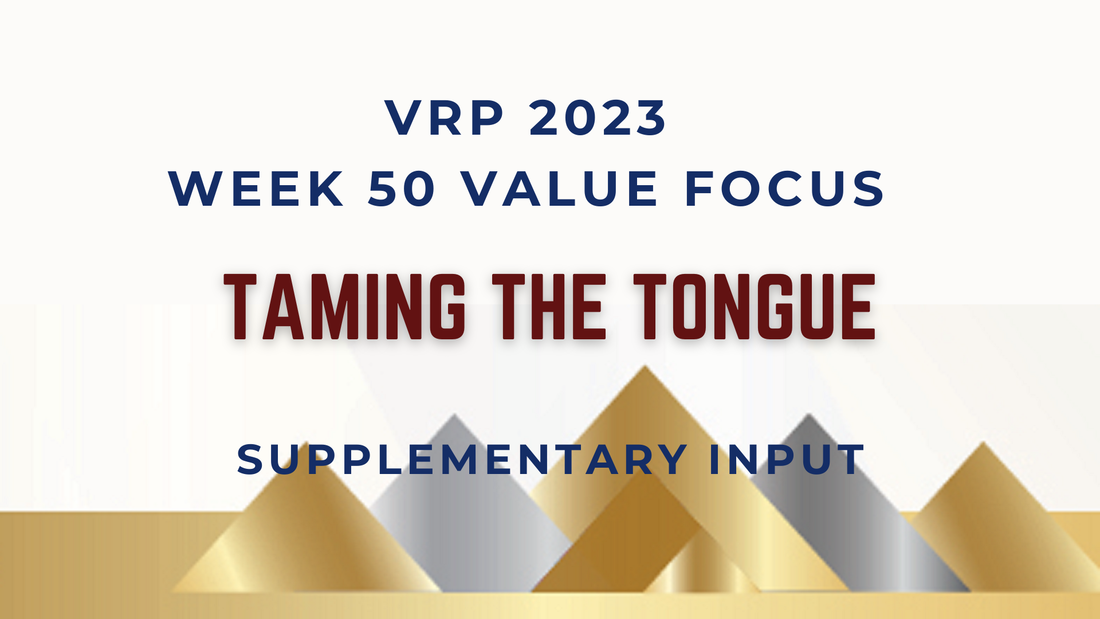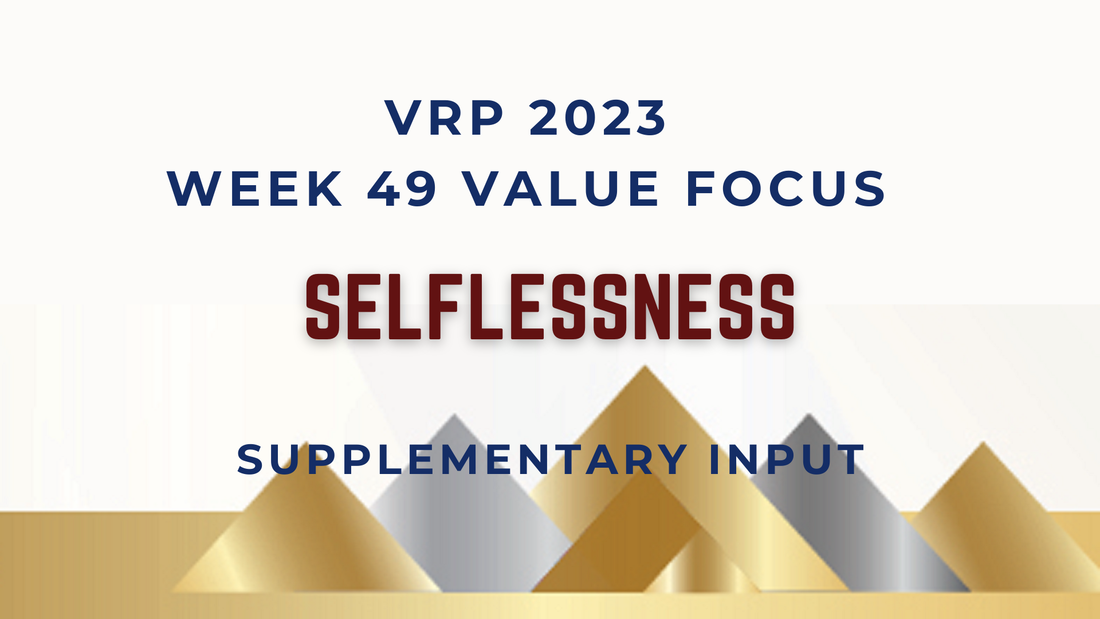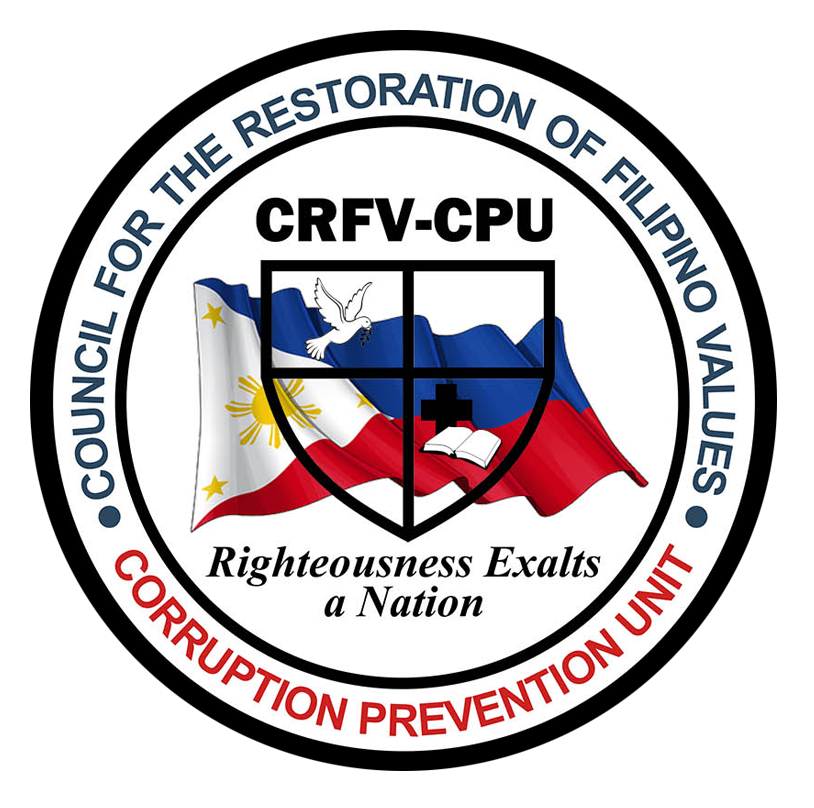|
By: JESUS V. SISON, PTRP CRFV, Deputy National Director “The best way to spread Christmas cheer is singing loud for all to hear.” – Will Ferrell
This season is a celebration of a time of glad tidings. We hear Christmas carols and greetings everywhere we go. We convey a message of hope, change, and love, and we are reminded to make the message loud so that everyone will take note. To make a resounding message and to have it accepted, it takes maturity and sincerity to deliver it. Thus, we need to be conscious of the power of our words, especially among us - mature leaders. The tongue has prodigious power. Like values, words also matter. We can intuitively know as we sweepingly look at history. From the scriptures and even referential books of the past, much of it has been shaped by words, for treaties in the name of peace, for good or ill. For instance, World War II began on September 1, 1939, and spilled in the Pacific on December 8. While the words of Adolf Hitler motivated the slaughter of millions of innocents to execute bloodshed and invasions, the words of Winston Churchill inspired and stirred a nation to resist their adversaries against all odds. Words can affect a nation and can also impact individual people. This shows a message can be so loud because of our spoken words. It also shows the importance of leaders mastering their speech and gaining mastery over their tongue. This is a sign of maturity of one’s leadership. Maturity in leadership harnesses the power of a tamed tongue. Such is the reason why God purposely designed the tongue to have power. Saint James is sharing that every time we open our lips, we expose who we are and what the contents of our hearts are. He’s saying that a person who skillfully knows how to bridle the tongue and rein it for good is a mature individual. A leader in his/ her capacity. A mature leader. Taming the tongue is not shutting up. It’s the wisdom and skill to know when to speak, when not, what to say, and to whom we will talk. Again, Saint James mentioned interesting analogies of what a tongue is. He said it was “Poisoned”. It tends to lean towards evil. He described it as “full of deadly poison.” it is a “restless evil.” Pronounces “world of unrighteousness.” It stains and contaminates the whole body, and it is set on fire by hell. These metaphors take us back to the dawn of creation in the Garden of Eden. It was in the garden where the devil injected its deadly poison into humanity. How? Through cunning words and ungodly conversations. Man can subdue every creature and has, except the human tongue. This is what sets humans apart from animals. We have language. We speak, but it was touched by sin. This is the moral lesson that we should remember. Words are so powerful that they can either build or destroy. It can give life or death. This is why we must be careful and discerning if we engage in ungodly conversations because we poison ourselves and destroy other people and relationships. Cunning and deceitful words will result in miseries and loss of our future and destiny. A mature leader harnesses the power of a tamed tongue. We must remind ourselves that our tongues were created to express thankfulness, worship, and glory to God. They are meant to build up, be constructive, develop, motivate, and encourage. We should be producing life instead of death. We should be speaking about redemption and renewal instead of corruption and lies. We should be declaring times of refreshing and seasons of restoration instead of condemnation and hopelessness. This brings us to the conclusion of the matter. A tongue problem is not categorically a tongue problem per se but is a heart problem. Jesus Christ said that out of the abundance of the heart, the mouth speaks. No person can tame the tongue because it reflects a corrupted heart because of “Selfish Interest Nature” or S.I.N. A speech problem, a problem taming or controlling ourselves, is not simply a personality flaw or a product of our environment or culture. It’s an issue of a dead, depraved, and sinful heart. But there is hope. God promised that He would give us a new heart. Jesus Christ came for this to take place. He was born on Christmas eve and sent glad tidings that there is hope and joy to all humanity. And through His death and resurrection, He destroyed the works of evil and the horror of sin. As we confess our sins, He is faithful and forgives us. As we confess His Lordship over our lives, He changes our hearts. He healed, cured, and restored a poisoned tongue through His finished work. No man can tame the tongue. Only Jesus can tame the tongue by setting us free from the bondage of a corrupt heart. King David prayed and declared: Who may worship in your sanctuary, Lord? Who may enter your presence on your holy hill? Those who lead blameless lives and do what is right, speaking the truth from sincere hearts. Those who refuse to gossip or harm their neighbors or speak evil of their friends. Those who despise flagrant sinners, and honor the faithful followers of the Lord, and keep their promises even when it hurts. Those who lend money without charging interest, and who cannot be bribed to lie about the innocent. Such people will stand firm forever
0 Comments
by: Atty. Carolina Lim-Gamban Selflessness is a character that each public official and employee must possess, for without it, the essence of public service is lost. No other than the Philippine Constitution mandates that public officers and employees must, at all times, serve the people with utmost responsibility, integrity, loyalty, and efficiency. For a civil servant to do this, he or she must possess a high standard of ethics, upholding the public interest over and above personal interest. The demand for this high standard will only be met if one observes selflessness.
Taking the extra mile to ensure the resources are used efficiently, effectively, honestly, and economically to avoid wastage in public funds is a form of selflessness. Although funds that will be used for procurement are not personally ours, being a good steward would allow us to spend every centavo wisely, for these funds came from the collective effort of the Filipino people, and it is prudent to put the money in its appropriate use. Those in the bids and awards committee have the privilege to protect our money from going to waste by scrutinizing the purchases to ensure that although the price is low, good product quality is still assured. Possessing and performing with a high degree of excellence, professionalism, and skill in our work is another form of selflessness. We capacitate ourselves, not just for the sake of it, but to improve the quality of the system and our services rendered to the people. Performing our work with justness and sincerity by bringing the best service to the people, especially the poor and underprivileged, is another form of selflessness. This is seen by not allowing our position to be abused by anyone or even dispensing or extending undue favors to our family, relatives, and friends, as we are sincere in fulfilling our oath as a lingkod-bayan. Extending our efforts to streamline and simplify the process so the public can easily avail and understand the procedure is another form of selflessness. Some civil servants even extend work beyond the hours required without additional compensation to deliver the service and address the needs of the public. This too, is another form of selflessness. The examples may go on and on, and you may add more, especially if you are in the public service, by asking yourself, “What have I done so far to show selflessness to others?” You can answer this by simply looking back to the provisions of Republic Act No. 6713, also known as the Code of Conduct of Ethical Standards for Public Officials and Employees, and do your part by fulfilling the required norms of conduct enumerated in Section 4. Of course, being a civil servant is not easy; however, selflessness creates a space to love others, thereby enabling us to serve with utmost responsibility, integrity, loyalty, and efficiency. And what is the best reward when we do this and give our best selflessly? It is to come into the presence of our Creator, hearing His words, “Well done, my good and faithful servant. Come and share your Master’s happiness.” |
CRFV Winning TeamA company of men and women who have committed their lives to the cause of national transformation. Archives
July 2024
Categories
All
|
Our Services |
Our Organization |
SupportSupport Page
FAQ Terms of Use |
Copyright © 2015 | Baguio City, Philippines 2000 | 074-424-1497 | [email protected]



 RSS Feed
RSS Feed
